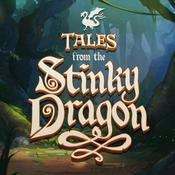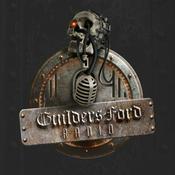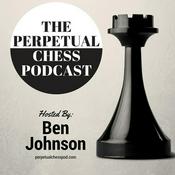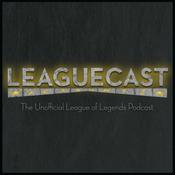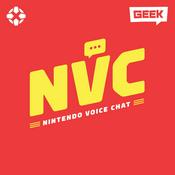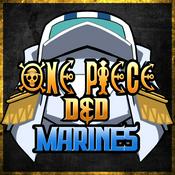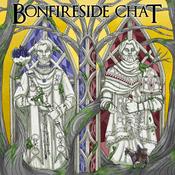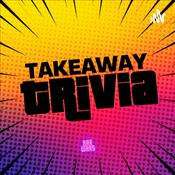65 episodes

Are Fighting Games Improving? EVO 2023 Extensive Discussion with Quash (Guilty Gear XX Player)
2023/9/07 | 5h 44 mins.
Are Fighting Games Improving? EVO 2023 Extensive Discussion with Quash (Guilty Gear XX Player). In today's epic video, Quash and I discuss the past, present, and future of fighting games, leading up to our thoughts on EVO 2023. And for the first time in a long time, I'm actually interested and excited to watch it this year. As of late I have been playing a lot more Tekken and Virtua Fighter, but I'm also interested in a lot of games being played. We go over our thoughts an avalanche of topics, such as: The decline and future of 3D fighting games, Sales vs Tournament entries, Steam Charts vs Tournament entries, the homogenization of game mechanics, the importance of netcode for upcoming pro players, sluggish UI Design, the issues with online Matchmaking, the function of rank modes and why they need fixed, Differences in perception in JP and NA scenes, is the EVO gladiator format still the best, or should they start to look more into leagues? The Final Year of Tekken 7, should Marvel happen every year, the sleeping giant that is the Street Fighter IP, the uncertain fate of Project L, the importance of graphical presentation, my love and concern for Virtua Fighter and Dead or Alive, and so much more. The games and tournaments we discussed are: Street Fighter 6 - 7k entrants Guilty Gear -Strive- 2.4k entrants Mortal Kombat 11: Ultimate - 449 entrants Tekken 7 - 1.5k entrants The King of Fighters XV - 666 entrants Melty Blood: Type Lumina - 554 entrants Dragon Ball FighterZ - 838 entrants Ultimate Marvel vs Capcom 3 - 1.3k entrants

Shmups VS Speedrunning, Natural Vs. Fan-Made Meta | Ft. @neoxaquas
2023/9/07 | 1h 8 mins.
Shmups VS Speedrunning, Natural Vs. Fan-Made Meta | Ft. @neoxaquas . Today's topic has been a subject that has fascinated me for a long time, the difference between shmup scoreplay meta and speedrunning time meta. What's interesting is that for a long time, I've heard speedrunners talk about scoreplay in the tone of an outdated style of competitive design. Like if you watch the history of speedrunning video by Karl Jobst, he describes score play as essentially the ooze from which the glory of speedrunning was born. This makes some sense if you only look at speedrunning from their community perspective. However, over the years I have become more skeptical of community / fan made meta (see my discussion of the subject with the Crimson Blur about Melee) and in today's video I am joined by Aquas who is the perfect guest on the topic as he has world records in both speedrunning and shmup score play (a rare accomplishment!). We cover a variety of fun topics, including his world record progression in Pink Sweets, and the heart of the conversation for me is what are the strengths and weaknesses of fan-made meta, like speedrunning, and what are the strengths and weaknesses of natural built in meta like scoreplay. In the end, I find that I greatly prefer the natural meta of scoreplay (and fighting game tournament play) because it is less arbitrary and prone to manipulation from fellow players and outside forces (besides the developer). However, this doesn't mean that I don't think speedrunning in itself isn't a cool idea, and I even offer what I think is the best solution for the issue in the form of what M2 Shottriggers have been doing with their shmup ports. Imagine if Nintendo actually put some care into their wave of ports and re-releases, and included speedrunning modes and leader boards in their ports. Also I love that Aquas brought up how heavily nostalgia plays into a speedrun game's popularity, because there are tons of speedruns that I think could be fascinating (Dead to Rights Super Cop), but sadly the non-nostalgic games tend to be extremely under-explored. That being said, there are also issues that can rise up from relying solely on the natural meta of a game, like Battle Garegga and its infinite milk, so again I think this is where having robust ports with patches really smooths out a lot of issues, other wise competitive score play is going to rely very heavily on replay analysis and community leader boards and we've seen enough "I GOT A CHEATED RUN PAST THE MODS!" vids for a lifetime.

The Crimson Blur, Has Smash Melee Sabotaged Itself?
2023/9/07 | 3h 31 mins.
The Crimson Blur, Has Smash Melee Sabotaged Itself?This is a FANTASTIC Conversation, even if you aren't plugged into Melee we discuss a lot of relevant topics about game design and competitive integrity. In today's episode, @TheCrimsonBlur and I talk about the current state of Super Smash Bros Melee and have an open conversation about many of my thoughts and critiques of how things are going in competitive Smash right now. I have followed Melee for over a decade now and in this time I think the scene has become increasingly insular and unable to see some of its decisions and ideas from an outside perspective, so I think if you are a fan of Melee or not this conversation is going to be a breath of fresh air outside the usual talking points that you hear repeated on Twitter and on streams over and over. We cover a lot of subjects, but some of the main topics are: Who is Melee's REAL father? As I feel Sakurai is heavily over-creddited for the creation of what we love about Smash 64 and Melee. The nature of Melee as being a community made meta, rather than a natural meta, and how this leads to a lot of more radical decisions when it comes to rule sets (even going so far as to modify the game itself). I talk about the current culture of smash, that obsesses over the e-celeb aspects of its players and personalities, but largely ignores the actual tournament organizers and people who support the scene's infrastructure. Of course we touch on the Nintendo vs Melee community controversy and I share my thoughts on how the community should study Nintendo's motivations more, rather than always relying on social media and fan backlash to protect itself (which I do not believe will work forever). We talk about the recent ruleset changes to ban wobbling and add edge grab limits, and how I feel that these rule changes are reactionary and targeted, rather than being a fair case of assessing outliers in a ruleset. Then there is the sanctioned cheating that is occurring in the ruleset in terms of allowing macros and input processing in the Smash Box as well as the Goomwave. I explain my philosophy behind genuine hardware mods (physical mods) vs cheating mods (introduction of electronics and input processing) and remind the world that Blur, many years ago, predicted these issues but was ignored. Follow Blur at: https://twitter.com/OXY_Crimson Awesome thumbnail by @boghogSTG

The Tragedy Of Fighting Games.
2023/9/07 | 35 mins.
The Tragedy Of Fighting Games. Perhaps a spicy video, but I think it's important to keep it real (sometimes). Today I am talking about one of my favorite video game genres of all time, fighting games. Fighting games are in my top three alongside shmups and beat em' ups. I have been playing fighting games in a competitive and then semi-competitive since around 2010 or so, so I've been around and plugged into the genre for a long time. Today I am discussing what I like to call the tragedy of fighting games, in that no matter how good a fighting game is, no matter how much the player base loves that individual game, all fighting games are doomed to an early appointment with the grim reaper. Even games that have longstanding player bases like Super Smash Bros Melee and Street Fighter 3, Third Strike (or even Street Fighter 2, Super Turbo) cannot continue onward into future generations and be played in a full competitive manner. What I mean is that just being able to match make in a game every now and then is not good enough. In reality most fighting games are only intensely explored and played during a five year window or so, and then that game is put aside for the next iteration of the series. What I find tragic about this though, in the literal sense of the word, is that this fate is inescapable from what I have observed. No matter what approach a developer or fan base take, the end of the game being played at full capacity seems fated. I go into specific detail of why this is in the video. So this video is not meant to be a critique or warning against the genre, but rather a somber celebration of what makes the genre so special and also, ultimately, tragic. I thought it would be fun to discuss this video in light of the upcoming releases of Tekken 8 and Street Fighter 6. At this point I am fully planning on playing Tekken 8 unless it is some kind of abomination, and my interest in the Street Fighter franchise as it is currently being made is gone. But I think I will review and discuss both games here on the channel as I think that will be interesting, as fighting game reviews from impartial experienced players are rather rare. I also am really into Guilty Gear XX Accent Core right now as well as DOA, so I plan on doing some vids about those games in the future as well Thumbnail made by me this time! Though @boghogSTG still helped with advice on how to touch it up.

GAME CRITIQUE IS DEAD: Why Reviewers SHOULD Be Skilled Players | The Definitive Discussion
2023/9/07 | 2h 33 mins.
GAME CRITIQUE IS DEAD: Why Reviewers SHOULD Be Skilled Players | The Definitive Discussion. Today is a very special video where @boghogSTG and I discuss the current (and awful) state of video game reviews and critique. This isn't just a bunch of empty complaining, however (at least I hope so). Instead we discuss the nature of what is good critique, what is the role of the critic vs reviewer, what forces influence critics and reviewers, both conscious and unconscious. We also make our strongest case for why video game reviewers SHOULD be skilled players, why this is an important value a critic should strive for, and how being a skilled player not only improves reviews, but also is an important asset for game developers as well. We also get into the topic of access journalism that we see IGN and the major game publishers engaging in (such as IGN infamously "forgetting" to review Cyber Punk 2077) and how the video game review space has more in common with the Yakuza than it does open artistic discourse. Sphere Hunter may be invited to Capcom events, but she's not at the IGN level of access to be allowed to review the game before the release date. Imagine all the NDA's that level of access would involve. Talking about IGN, eurogamer, Polygon, Kotaku, and Gamespot is one thing, but we also get into what is the role of the youtuber in this equation and how even if the youtuber is not directly being contacted by game publishers, he is still being indirectly shaped by the marketing of AAA games and their vocal fan bases. As a result, we see a cyclical trend of hype marketing around releases like Resident Evil 4 Remake, The Legend of Zelda Breath of the Wild (and soon to be Tears of the Kingdom), and Bayonetta 3, where all the reviews are going to fall in line with the marketing. And if you are more critical of these games during their release window, prepare to be hit by the hype train, which is not going to be a fun experience. As a result, I think we've seen a shift in the youtubing meta away from the over the top reviews that we saw in the Angry Video Game Nerd era of gaming youtube. Instead, we are now in the fluf**** era, where youtubers take games that are already hyped and highly anticipated, and then just dial the hype levels up even higher (as we see on Maxamillion Dood's channel). So now all average games are *amazing* and all good games are modern masterpieces.
More Leisure podcasts
Trending Leisure podcasts
About Electric Underground Podcast
Listen to Electric Underground Podcast, Tales from the Stinky Dragon and many other podcasts from around the world with the radio.net app
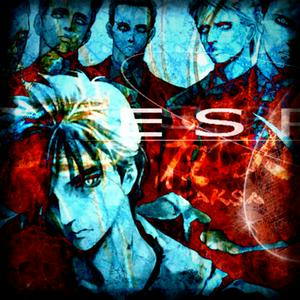
Get the free radio.net app
- Stations and podcasts to bookmark
- Stream via Wi-Fi or Bluetooth
- Supports Carplay & Android Auto
- Many other app features
Get the free radio.net app
- Stations and podcasts to bookmark
- Stream via Wi-Fi or Bluetooth
- Supports Carplay & Android Auto
- Many other app features


Electric Underground Podcast
download the app,
start listening.
